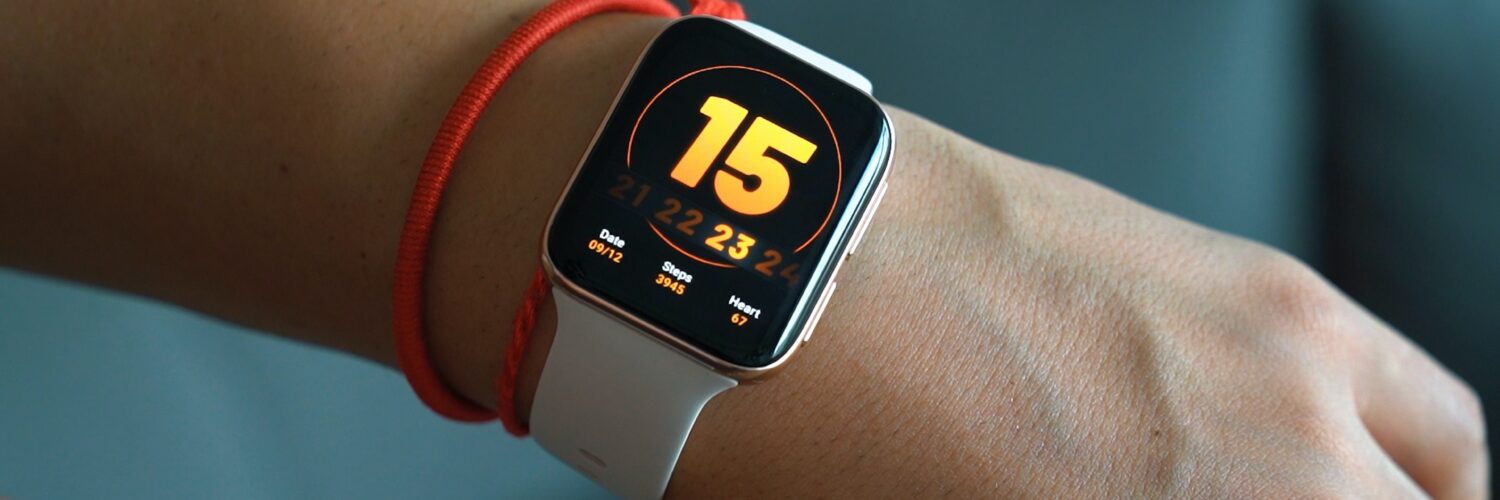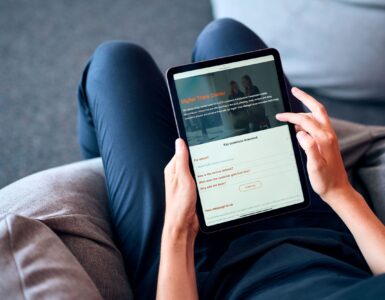Wearables, i.e. portable electronic devices such as smartwatches, fitness bracelets and smart clothing, enable the continuous and non-invasive collection of various physiological parameters. These devices capture heart rate, activity level, sleep patterns and even ECG or SpO2 data. Due to their wide availability and ease of use, wearables are increasingly used in clinical trials to gain new insights and improve the understanding of diseases and health conditions. Wearables allow for continuous and long-term recording of health data, including within home environments. This capability facilitates the formation of personalized health profiles and subsequent analysis. Application areas for wearables range from monitoring patients with chronic diseases to recording activity and sleep patterns.
Data export options from end devices
Wearables primarily use Bluetooth (BL) or Bluetooth Low Energy (BLE), a widespread and easy-to-use technology. However, these technologies have limitations in range when wirelessly transmitting data to mobile end devices like smartphones. A manufacturer-specific application processes data on the end device. In order to be able to further process collected data for clinical trials, there are two ways of exporting data. One option is to use the manufacturer-specific cloud platform. Exporting data from the end device to the associated cloud occurs through the manufacturer-specific app. This process commonly involves utilizing the manufacturer’s provided API (here: interface for data export). When using these platforms, it’s essential to ensure compliance with relevant data protection regulations, like the General Data Protection Regulation (GDPR). The second option is exporting data directly from the end device without routing it through the manufacturer’s app or dedicated cloud service. Typically, this requires the implementation of a smartphone application that communicates directly with the wearable via Bluetooth. This application is responsible for the use and transfer of the data within the scope of the study. Utilizing a smartphone application entails greater effort, yet it offers the advantage of tailoring an application specifically for the use case in the clinical trial. In any scenario, it’s possible to design such an application to comply with GDPR regulations.
MDR-certified medical devices vs. consumer wearables in clinical trials: Balancing regulation and accuracy
Often, clinical trials use wearables that are MDR certified and thus approved as medical devices. The main difference between MDR medical devices and traditional consumer wearables is their purpose and regulation. MDR medical devices undergo strict regulations to ensure their safety and performance due to their specific design for medical purposes. Before entering the market, MDR-certified wearables used for diagnosis, therapy, and prevention undergo a thorough conformity assessment. On the other hand, wearables like smartwatches and fitness bracelets monitor personal health. The focus of these wearables is on the collection of fitness and wellness data. For this reason, the regulatory requirements for wearables from the leisure sector are less stringent and usually do not carry a CE marking. Using wearables from the leisure sector in clinical studies requires careful consideration. Due to the lack of validation for medical purposes, the data collected is often less accurate than for medical devices. In clinical trials demanding precise medical data, the MDR typically favors the use of medical devices.
Ethical considerations in wearable selection for clinical trials: Data ownership, security and risk assessment
Considering ethical and safety concerns is crucial when choosing a suitable wearable for clinical trials. Questions regarding ownership, protection, and release regulations as well as cyber security need to be addressed:
- What is the allowable duration for storing data on the device or a linked smartphone?
- How frequently and through which channels is the data transferred to the cloud?
- To what extent are data sets effectively safeguarded against unauthorized access?
Each clinical application requires a risk-benefit assessment. Wearables offer a promising tool to continuously collect data in real time and thus contribute to the expansion of traditional study designs. Data collected by wearables during patients’ daily activities assists doctors and therapists. They use this information to develop and implement personalized treatment plans for their patients. Nevertheless, careful planning, validation and integration of wearable technologies are necessary to achieve the best possible results and successfully address privacy and interoperability issues.
What solutions do we offer our customers?
To use wearables effectively in clinical trials, seamless integration with a study management system is important. Our study management system, DPM.research, enables the collection of sensor data from vendor-independent wearables. A specialized patient app securely transfers this data to a dedicated study server. We’ve designed an Android app to ensure a uniform user interface and enhance patient compliance. This app can connect wearables from different maufacturers, particularly medical ones, integrate questionnaires (so called ePROMs), and securely transfer the data. Another advantage is the storage of the data directly in DPM.research. This circumvents the problem of the lack of data protection compliance of many cloud providers, especially in the American region.
Would you like to learn more about dpm.research?
Take a look at our article where we delve deeper into our study management system:
Clinical Study Efficiency: Presenting our eCRF System
Alternatively, explore our website to discover the projects where dpm.research has been used:
Copyright: Unsplash/OnurBinay







Add comment